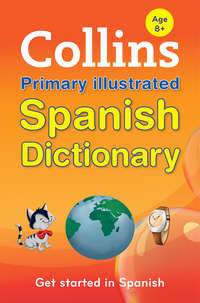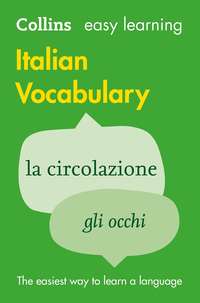
Полная версия
Easy Learning French Conversation
Is it…?
Est-ce que c’est cher?Is it expensive?Est-ce que c’est un hôtel moderne?Is it a modern hotel?C’est loin?Is it far?Le petit déjeuner est inclus dans le prix?Is breakfast included in the price?Est-ce que toutes les charges sont comprises dans le loyer?Are all the bills included in the rent?You can use Il y a…? in French to ask both Is there…? or Are there…?.
Is there…?
Est-ce qu’il y a un endroit où manger près d’ici?Is there anywhere near here where we can get something to eat?Est-ce qu’il y a un interphone?Is there an intercom?Est-ce qu’il y a vue sur la mer?Is there a sea view?Est-ce qu’il y a le chauffage central dans l’appartement?Is there central heating in the apartment?Il y a des toilettes handicapés?Are there any disabled toilets?Use je cherche (I’m looking for) or on cherche (we’re looking for) to ask where something is. cherche comes from the verb chercher. For more information on -er verbs like chercher, see here.
I’m looking for…
Excusez-moi, je cherche le camping.Excuse me, I’m looking for the campsite.Je cherche une chambre d’hôte pour ce soir.I’m looking for a B&B for tonight.On cherche l’hôtel du Nord.We’re looking for the hôtel du Nord.To get more specific information you may need to ask Quel…? (What…?), Où…? (Where…?) or À quelle heure…? (What time…?).
What…?
Quel est le nom de l’hôtel?What’s the name of the hotel?Quel est le numéro de l’agence immobilière?What’s the number for the letting agency?Quelle est l’adresse du propriétaire?What’s the address of the landlord?Quels sont vos tarifs?What are your rates?BON À SAVOIR!
Remember to use quel with a masculine word and quelle with a feminine word.
Where…?
Où est le bar?Where’s the bar?Où est la salle de fitness?Where’s the gym?Où sont les ascenseurs?Where are the lifts?Où est-ce que je peux brancher mon portable?Where can I plug in my laptop?What time…?
À quelle heure est le dîner?What time’s dinner?À quelle heure vous fermez les portes le soir?What time do you lock the doors at night?Il faut libérer la chambre avant quelle heure?What time do we have to vacate the room by?Vous servez le petit déjeuner jusqu’à quelle heure?What time do you serve breakfast till?You are very likely to want to ask how much something costs. To do this, use a phrase containing combien.
How much…?
C’est combien pour une nuit en chambre double?How much is a double room per night?C’est combien pour la pension complète?How much is full board?Combien ça coûterait de louer un gîte pour tout le mois de juillet?How much would it be to rent a gîte for the whole of July?How many…?
Il vous reste combien de chambres avec salle de bains?How many en-suite rooms have you got left?Il y a combien de lits dans la chambre familiale?How many beds are there in the family room?ASKING FOR PERMISSION
Often when you are staying in a hotel or other accommodation you will need to be able to ask whether you can do something or not. Use Est-ce que je peux…? (Can I…?) or Est-ce que nous pouvons…? (Can we…?) to ask if you can do something. These come from the verb pouvoir. For more information on pouvoir, see here.
Can I…?
Est-ce que je peux voir la chambre?Can I see the room?Est-ce que je peux laisser mes valises ici cinq minutes?Can I leave my suitcases here for five minutes?Est-ce que je peux fumer dans la chambre?Can I smoke in the room?Est-ce qu’on peut utiliser la piscine?Can we use the pool?Est-ce qu’on peut camper ici?Can we camp here?Do you mind if…?
Ça vous dérange si je gare ma voiture dehors un instant?Do you mind if I park my car outside for a moment?Ça vous dérange si je paye par carte de crédit?Do you mind if I pay by credit card?Ça te dérange si on prend la chambre du haut?Do you mind if we take the upstairs bedroom?If you want to ask someone if you may do something, use Vous permettez que…? (Am I allowed to…?) followed by a verb in the subjunctive. For more information on the subjunctive, see here.
Am I allowed to…?
Vous permettez que je reçoive des invités?Am I allowed to have guests?Vous permettez que je me serve de la machine à laver?Am I allowed to use the washing machine?Vous permettez qu’on utilise le téléphone?May we use the phone?On a le droit de se servir du barbecue?Are we allowed to use the barbecue?On a le droit d’emmener notre chien?Are we allowed to bring our dog?SAYING WHAT YOU LIKE, DISLIKE, PREFER
When talking about what you like, use j’aime bien (I like), which is not as strong as j’aime or j’adore (I love). To say what you don’t like, just use je n’aime pas (I don’t like). These come from the verb aimer. For more information on aimer, see here.
I like…
J’aime bien les petits hôtels.I like small hotels.J’aime bien les campings de montagne.I like campsites in the mountains.J’adore cette pension de famille.I love this guest house.I don’t like…
Je n’aime pas cet hôtel.I don’t like this hotel.On n’aime pas tout prévoir à l’avance.We don’t like to plan everything in advance.Je déteste cette décoration.I hate this decor.If you want to say what you prefer, use je préfère (I prefer) or je préférerais (I’d prefer). To say that you prefer A to B, use je préfère A à B. These come from the verb préférer. For more information on -er verbs like préférer, see here.
I prefer…
Je préfère cet hôtel.I prefer this hotel.Je préfère loger chez l’habitant.I prefer to stay with a family.Je préférerais ne pas attendre pour réserver un hôtel.I’d prefer not to wait to book a hotel.On préfère l’auberge de jeunesse au camping.We prefer youth hostels to campsites.I’d rather…
J’aimerais mieux être dans le centre ville.I’d rather be in the town centre.J’aimerais mieux être en colocation que de vivre seul.I’d rather share a flat than live on my own.On aimerait mieux vivre à la campagne que d’avoir un appartement en ville.We’d prefer to live in the country than have a flat in town.EXPRESSING OPINIONS
You may well be asked what you think of your accommodation. Whether it’s perfect or not up to scratch, you can use je trouve to say what you think. This comes from the verb trouver. For more information on -er verbs like trouver, see here.
I think…
Je trouve la chambre un peu petite.I think the bedroom’s a bit small.Je trouve la maison très accueillante.I think the house is very welcoming.J’ai trouvé le service excellent.I thought the service was excellent.Je trouve qu’il y a trop de bruit la nuit.I find that there’s too much noise at night.In my opinion…
À mon avis, c’est trop cher pour ce que c’est.In my opinion, it’s too expensive for what it is.À mon avis, c’est parfait pour ce dont on a besoin.In my opinion, it’s perfect for our needs.À mon avis, la chambre est trop petite.In my opinion, the room is too small.À mon avis, c’est complètement inacceptable.In my view, it’s completely unacceptable.MAKING SUGGESTIONS
If you would like to suggest that you do something, use je peux (I can) followed by the infinitive and si vous voulez (if you like) – or si tu veux for a person you know well – at the end. peux comes from the verb pouvoir. For more information on pouvoir, see here.
I can… if you like
Je peux confirmer les dates demain, si vous voulez.I can confirm the dates tomorrow, if you like.Je peux vous envoyer un acompte, si vous voulez.I can send you a deposit, if you like.On peut chercher un autre hôtel, si tu veux.We can look for another hotel, if you like.If you wish to ask what someone would like you to do, you can use Vous voulez que je…? (Would you like me to…?) followed by a verb in the subjunctive, which you can find out more about here.
Would you like me to…?
Vous voulez que je vous paye en liquide?Would you like me to pay cash?Vous voulez que je vous montre ma réservation?Would you like me to show you my booking?Tu veux que je prenne le lit du haut?Would you like me to take the top bunk?Est-ce que vous voulez qu’on vous laisse nos passeports?Would you like to keep our passports?ASKING FOR SUGGESTIONS
You may want to ask for advice or a recommendation concerning your accommodation. To ask for advice, use Est-ce que vous me conseillez de…? (Would you advise…?). This comes from the verb conseiller. For more information on -er verbs like conseiller, see here.
Would you advise…?
Est-ce que vous me conseillez de réserver à l’avance?Would you advise me to book in advance?Est-ce que vous nous conseillez d’amener des sacs de couchage?Would you advise us to bring sleeping bags?Vous me conseillez d’amener de quoi manger?Would you advise me to bring something to eat?Would you recommend…?
Est-ce que vous recommandez cet hôtel?Would you recommend this hotel?Est-ce que vous recommandez cette agence immobilière?Would you recommend this estate agency?Est-ce que vous nous recommandez de louer à la semaine?Would you recommend that we rent by the week?Vous nous recommandez de prendre un appartement en ville?Would you recommend us to take a flat in town?SAYING WHAT YOU HAVE TO DO
If you want to say that you have to do something with regard to your accommodation in French, you use il faut que je (I have to) or il faudrait que je (I ought to) and then the verb in the subjunctive, which you can find out about here.
I have to…
Il faut que je passe à la réception pour payer.I have to go to the reception to pay.Il faut que je note l’adresse de l’hôtel.I have to write down the address of the hotel.Il faut qu’on parte à six heures demain matin.We have to leave at six tomorrow morning.I ought to…
Il faudrait que je fasse une lessive.I ought to do a load of washing.Il faudrait que je décharge la voiture.I ought to unload the car.Il faudrait qu’on se lève avant sept heures.We ought to be up by seven am.Il faudrait qu’on ait le double des clefs.We ought to have a spare set of keys.Alternatively, you can use je dois (I must), from the verb devoir. For more information on devoir, see here.
I must…
Je dois me lever tôt demain.I must get up early tomorrow.Je dois rendre les clés au propriétaire.I must give the keys back to the owner.On doit absolument trouver un logement avant la fin du mois.We absolutely must find accommodation by the end of the month.In French you can tell somebody what you need by using j’ai besoin de (I need).
I need…
J’ai besoin d’un lit d’enfant.I need a cot.J’ai besoin de téléphoner en Écosse.I need to call Scotland.Nous avons besoin d’une chambre au rez-de-chaussée.We need a room on the ground floor.You can use Est-ce qu’il faut que…? (Do I have to…?) followed by the verb in the subjunctive to ask about what you have to do. For more information on the subjunctive, see here.
Do I have to…?
Est-ce qu’il faut que je laisse la clef à la réception quand je sors?Do I have to leave the key at the reception when I go out?Est-ce qu’il faut qu’on emmène des sacs de couchage?Do we need to bring sleeping bags?Est-ce qu’il faut vous prévenir quand on quitte l’hôtel?Do we have to let you know when we leave the hotel?Qu’est-ce qu’il faut que j’emmène?What do I need to bring?Quand est-ce qu’il faut qu’on libère la chambre?When do we have to vacate the room?Alternatively, you can use Est-ce que je dois…? (Do I need to…?)
Do I need to…?
Est-ce que je dois faire le ménage dans l’appartement avant de partir?Do I need to clean the flat before leaving?Est-ce que je dois réserver?Do I need to book?Est-ce qu’on doit laisser un pourboire à la femme de chambre?Do we need to leave a tip for the housekeeper?TALKING ABOUT YOUR PLANS
When you are talking about your plans for where you’re going to stay, in French, as in English, the present tense is very often used to talk about things that have been arranged and are definite. For more on the present tense, see here.
I’m staying…
Je loge en auberge de jeunesse la première semaine.I’m staying in a youth hostel the first week.Je loge chez l’habitant le premier soir.I’m staying with a host family the first night.… ensuite je dors à l’hôtel.… then I’m staying in a hotel.Alternatively, you can use the future tense in French, as in English.
I’ll…
Je serai à l’hôtel à dix-sept heures.I’ll be at the hotel at five pm.Je paierai le loyer à l’avance.I’ll pay the rent in advance.On arrivera dans la soirée.We’ll arrive in the evening.In English we often say I’m going to to talk about the future. French works the same way. To say that you’re going to do something, put je vais (I’m going to) or on va (we’re going to) before the verb. vais and va come from the verb aller. For more information on aller, see here.
I’m going to…
Je vais loger à Biarritz.I’m going to stay in Biarritz.Je vais louer un chalet à la montagne.I’m going to rent a chalet in the mountains.On va faire du camping.We’re going to camp.If you want to say that you intend to do something, you can use j’ai l’intention de or je compte (I intend to).
I intend to…
J’ai l’intention de louer un appartement.I intend to rent a flat.J’ai l’intention de trouver un gîte.I intend to find a gîte.Je compte rester jusqu’à vendredi.I intend to stay until Friday.On compte partir demain après le petit déjeuner.We intend to leave after breakfast tomorrow.COMPLAINING
Unfortunately the service you get in your accommodation may not always be perfect. A very simple way of complaining is to say what the problem is using il y a, which means both there is and there are or il n’y a pas de which means there isn’t or there aren’t.
There’s…
Il y a trop de bruit.There’s too much noise.Il y a une fuite au plafond.There’s a leak in the ceiling.Il y a des cafards dans l’appartement.There are cockroaches in the apartment.There isn’t…
Il n’y a pas d’eau chaude.There isn’t any hot water.Il n’y a pas de serviettes propres dans la chambre.There aren’t any clean towels in the room.La chambre n’a pas de balcon.The room doesn’t have a balcony.L’appartement n’a pas la climatisation.The apartment doesn’t have air-conditioning.You can also use the verb être (to be) to describe what the problem is.
It’s…
L’appartement est sale.The apartment’s dirty.L’eau de la piscine n’est pas très propre.The water in the swimming pool isn’t very clean.Cet hôtel est trop bruyant.This hotel’s too noisy.Il fait trop chaud ici.It’s too hot in here.BON À SAVOIR!
Remember that in French to talk about the weather, you use the verb faire. For more information on this use of faire, see here.
LISTEN OUT FOR
Here are some phrases you are likely to hear when you’re looking for somewhere to stay.
Vous cherchez quel type de logement?What type of accommodation are you looking for?La réservation est à quel nom?Whose name is the booking in?Pour combien de nuits?For how many nights?Pour combien de personnes?For how many people?Le petit déjeuner est inclus dans le prix.Breakfast is included in the price.Je peux voir votre passeport, s’il vous plaît?Can I see your passport, please?Nous sommes complets.We’re full.Il y a une caution de 300 euros.There’s a 300 euro deposit.Vous êtes joignable à quel numéro?What number can we contact you on?Les chiens ne sont pas admis.We don’t allow dogs.Vous voulez régler comment?How would you like to pay?Remplissez ce formulaire, s’il vous plaît.Please fill in this form.Signez ici, s’il vous plaît.Please sign here.Vous pouvez épeler votre nom, s’il vous plaît?Can you spell your name for me, please?Lifestyle Tips
• The proportion of propriétaires (homeowners) in France is much lower than it is in Britain. People tend to rent a lot more. Long-term rented accommodation is usually unfurnished; locataires (tenants) often even have to supply their own appareils ménagers (white goods) and meubles de cuisine (kitchen units).







